

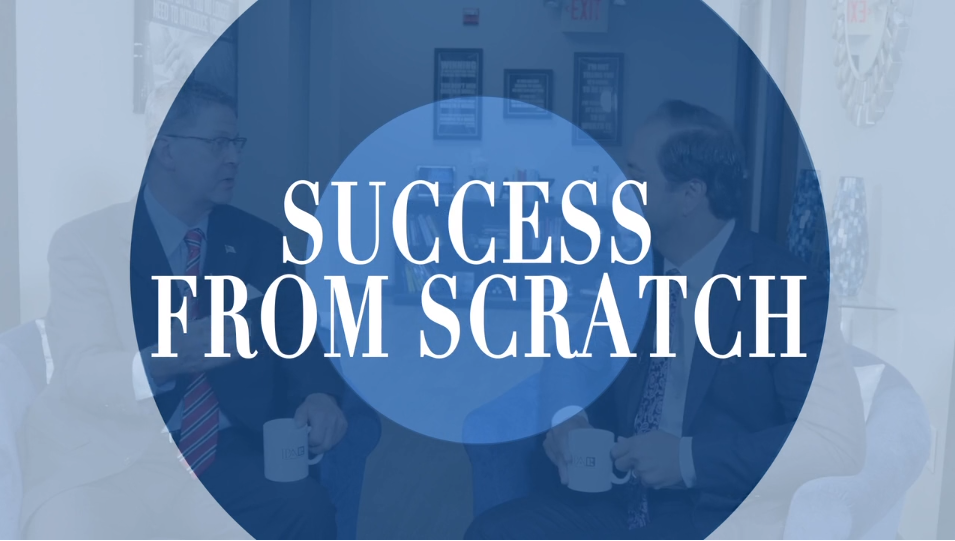
Episode 23 : Success From Scratch
Melissa Horton shares her real estate journey with us on today’s episode of “Success from Scratch.” “Fear was producing excuses everyday,” she says. Fear held her back and put her business into paralysis. It was her decision to “take action” that launched her career. Watch this week’s episode for her full story!
” Do not focus on the income, success is measured in 3 ways: contentment on both sides after the deal, my client will see me as a friend, doing the right thing without compromising my own character.”
-
– Melissa Horton, JP and Associates REALTORS®

Episode 22 : Success From Scratch
On today’s episode of “Success from Scratch,” we have Sam Lloyd and Tiphannie Clements from the W Lux Properties team. The team is on track to create $50 million dollars in business this year. The dynamic duo was matched together online, similar to “match.com,” yet for business. The culture of the team places great value on encouraging team members to collaborate and serve consumers at the highest level. Potential team members are invited to meet their whole crew to ensure culture fit and work ethic. Learn more by watching now.
“Regardless how big or small the home value, we treat them like a luxury.”
– W Lux Properties, Sam Lloyd and Tiphannie Clements, JP and Associates REALTORS®
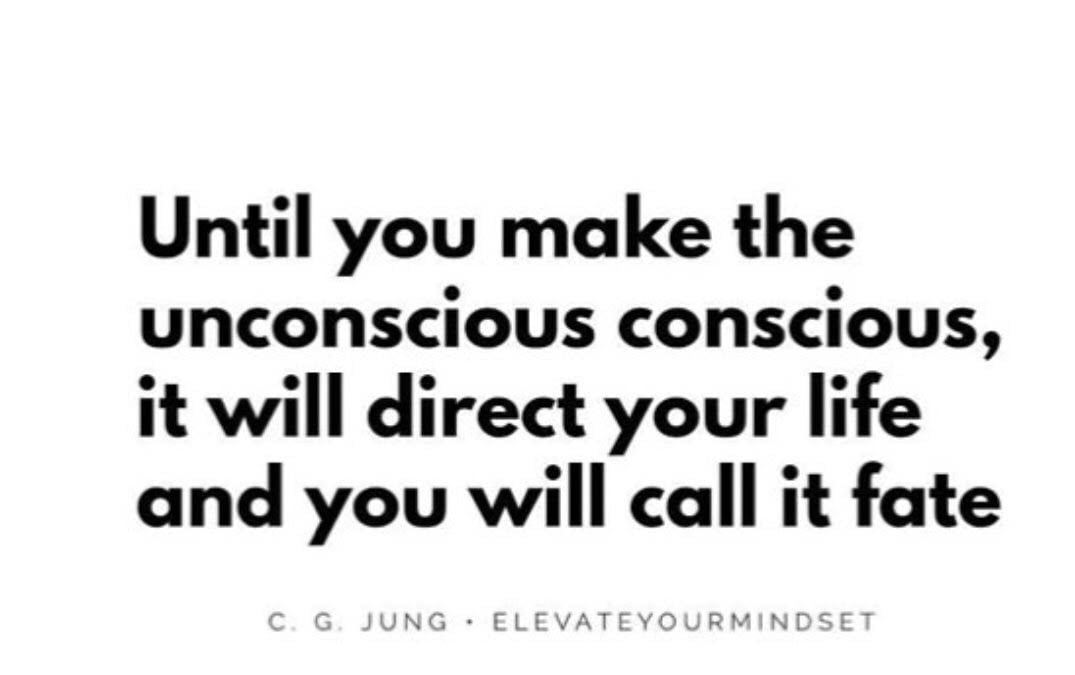
The Pain of Discipline OR The Pain of Regret?
This week I had requests to write about, “how to have more joy and fun in my business” and “how to avoid procrastination in my business.” Both excellent topics. I’ll write more about fun and joy in business on another post until then I’m reminded of that famous Abraham Lincoln quote: “Folks are usually about as happy as they make their minds up to be.”
Do you prefer the pain of discipline OR the pain of regret? Research shows that we regret those things we have not done MORE than we do the things we have done. Can you relate?
What I’ve experienced personally and observed in others is, procrastination blocks us from creating to the fullest the business and life we want. You already know, the main reason we procrastinate is that taking action will cause us a certain amount of pain, a certain amount of discomfort.
Coaching clients have shared with me, “I’m avoiding undertaking certain tasks because of the risk of shame, vulnerability or failure. Taking action means we might be making a mistake or we might fail. Let’s face it, it’s easier to not take action and avoid the pain of looking less than perfect. Thus, many of us instinctively retreat to our comfort zone and miss creating our ideal business. Basically, in trying to protect ourselves from failure it’s easier to erect our own barriers to success. Can you relate? If you’ve ever been in this place – as I have – how do you
get out?
Psychologist calls this a strategy of self-sabotaging. Research shows, that by creating impediments that make success less likely, we protect our sense of self-competence. And believe it or not, we as humans tend to do this more when the stakes are the highest.
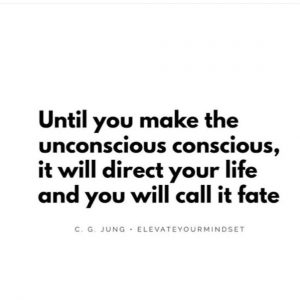
So how do we procrastinate less and take action more? Practice, get an accountability partner or join a mastermind group. By taking more small steps that lead to bigger steps you’ll build the “take action muscle.” By creating an accountability partner or mastermind group you’ll have others who can help you discern what is an excuse and what’s not. And consider these 5 action steps:
1. Remember a goal is NOT a system. A system will produce what a system will produce nothing less nothing more. Example, losing 10 pounds by September 1st is a GOAL. Learning how to change your eating habits is a SYSTEM. See the difference?
2. Make your goal tangible and specific. “Grow my business” sounds great but is also meaningless.”Land five new clients a month” allows you to determine exactly what you need to do to land those clients. Always set a goal that allows you to work backward and create a process designed to achieve it. It’s impossible to know exactly what to do every day when you don’t know exactly what you want to achieve.
3. Make it matter to you! If you want to get in better shape so other people will think you look better at the pool this summer, you’re unlikely to follow through. Ultimately, who cares what other people think?
Yet, if you want to get in better shape because you want to feel better, and feel better about yourself, or to set an example for your kids, or to prove something to yourself…then you’re much more likely to stick with it. Now your goal has meaning–not to your doctor, not to strangers at the pool, but to you.
4. Make it positive. “Stop criticizing other people in meetings” is a great goal, but it’s a negative goal. It’s a lot harder to give up or stop doing something than it is to embrace a new and positive challenge. Example, setting a goal like”stop eating sweets” means you constantly have to choose to avoid temptation and since willpower is often a finite resource, why put yourself in a position of constantly needing to choose?
When you pick positive goals, you’ll be working to become something new rather than avoid being something you no longer wish to be.
5. Focus on the process, the DAILY process. All incredibly successful people I’ve worked with have one thing in common… they set a goal and then focus all their attention on the process necessary to achieve that goal. Sure, the goal is still out there. But what they care about most is what they need to do today–and when they accomplish that, they feel happy about today.
So, I’ll ask again, do you prefer the pain of discipline OR the pain of regret? The choice is yours.
Do you have a question, theme or topic you’d like to see in a future blog? Let me know, until then #WinTheDay and remember what Abraham Lincoln said: “Folks are usually about as happy as they make their minds up to be.”

Episode 16: Success From Scratch
In this week’s episode of “Success From Scratch,” Meghan Pelley from the San Antonio market shares how she applies the art of “stop selling and start listening” to create a business she loves, by design.
“Stop selling and start listening.”
– Meghan Pelley, JP and Associates Realtors®

Put First Things First
Happy Monday. Last week I wrote about sharpening the saw… continuing with that theme today. As we learned together from the Stephen Covey video, to become a master of your time, you need to first be aware of your priorities in the larger context. The framework that I will be sharing with you in this blog is — the Time Management Matrix — it is designed to help you structure your daily activities and deal with them based on priority. Take a look:
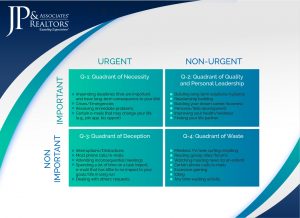
Time Management Matrix
Think of each square as a quadrant. The top left, urgent and important is Q1; important and non-urgent is Q2; non-important and urgent is Q3 and Q4 is non-important and the non-urgent. Take a look at this summary of dealing with each quadrant:
Q-1 Tasks: Manage immediately to get them out of the way. Spend the required effort such that they do not blow out of portion.
Q-2 Tasks: Focus disproportionately due to the high payoff from the investment.
Q-3 Tasks: Delegate, automate, or eliminate due to their urgent nature, but be minimally involved as they are not important.
Q-4 Tasks: Dump them as they are neither important nor urgent.
The table below illustrates a breakdown of how effective people allocate their time. The bigger the quadrant size, the more time you spend on it:
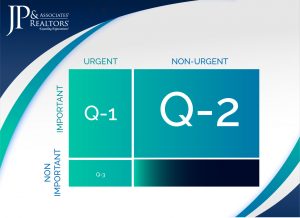
The Ideal Time Management Matrix
How do you choose to invest your time this week?
#WinTheDay #Productivity #Service #14K

